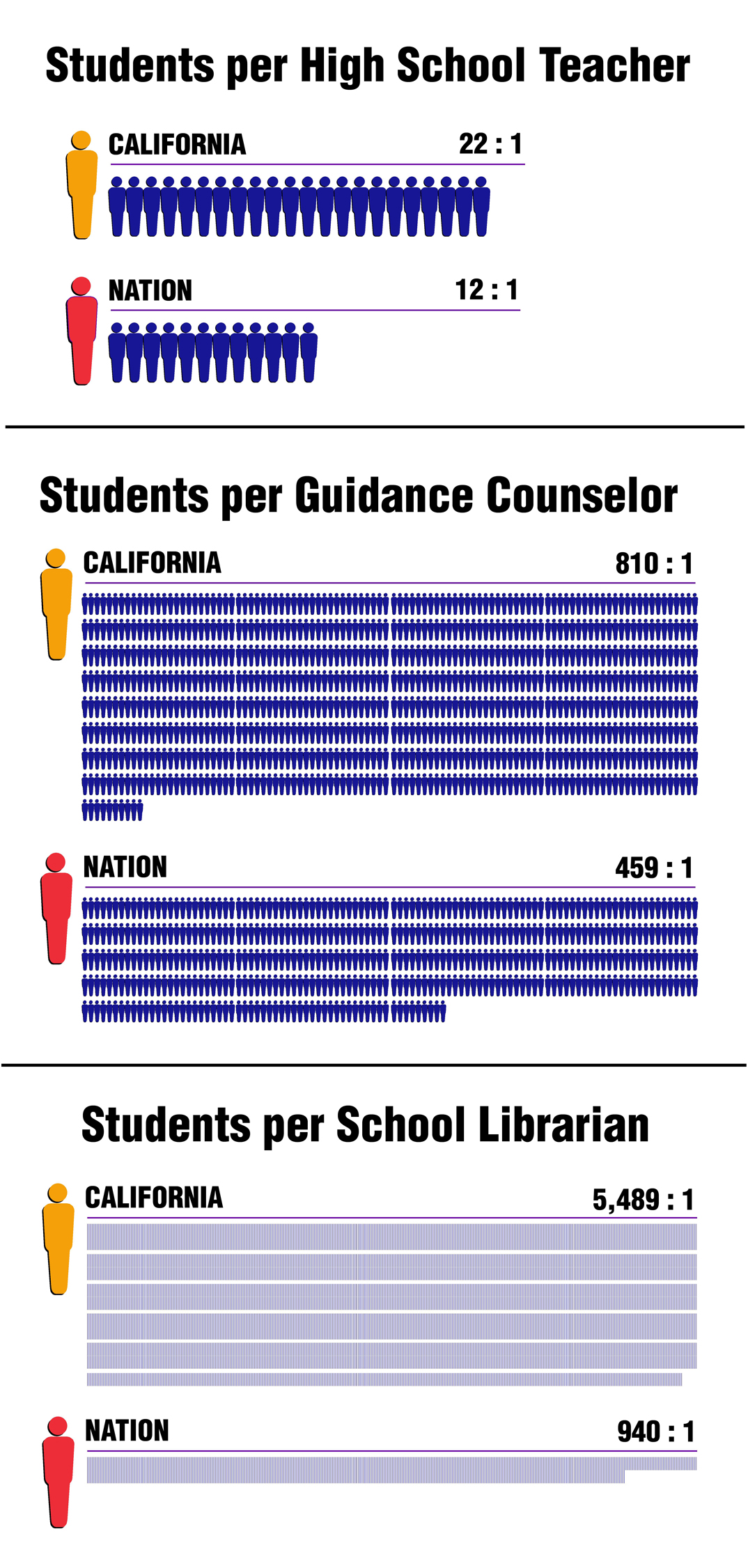 On September 14, 2011 former Gates Foundation executive and Broad Superintendents Academy graduate John Deasy gave a much ballyhooed speech at Occidental College. While I may have time in the future to critique his mendacious stream of business-speak, which amounted to a clever corporate couching of school privatization in the language of "civil rights," it was his aloof response to an attendee's pertinent question on school libraries that deserves an immediate response. Here's a quote from an attendee who endured Deasy's verbal assault on public education:
On September 14, 2011 former Gates Foundation executive and Broad Superintendents Academy graduate John Deasy gave a much ballyhooed speech at Occidental College. While I may have time in the future to critique his mendacious stream of business-speak, which amounted to a clever corporate couching of school privatization in the language of "civil rights," it was his aloof response to an attendee's pertinent question on school libraries that deserves an immediate response. Here's a quote from an attendee who endured Deasy's verbal assault on public education:"[O]ne of Rosemary's questions about his shutting school libraries got through. He said libraries would be irrelevant soon as books will move to electronic format. This was after he lamented about the plight of a homeless student living in a tent. I kid you not. I guess the kid in the tent will have to access books on the $800 I-Pad he can't afford."
A pointed and poignant question indeed to Los Angeles Unified School District's (LAUSD) Superintendent John Deasy, a man who deliberately gutted LAUSD's libraries in defiance of California's Assembly Bill 114, which was supposed to mandate the district spend its copious surplus funds on retaining the very personnel Deasy and company gleefully laid off. Laid off in a most ignominious fashion by the way, as Hector Tobar's The disgraceful interrogation of L.A. school librarians chronicled. Deasy's vapid and vacuous response to the library question sums up everything about corporate education reforms and shows why Deasy was hand selected to implement the neoliberal agenda in Los Angeles.
As disgusting as Deasy's quote about libraries being irrelevant was, it wasn't surprising considering his astonishing wealth and privilege. For wealthy white males like Deasy, poverty is something you see on television and it's easily solved by applying forms of the meritocracy myth via vile "no excuses" rhetoric and corporate privatization policies cloaked as promoting "high expectations." Deasy's own phrasing of the threadbare right-wing no excuses rhetoric reads as follows: "I actually believe that no other issue—circumstances of poverty, one parent, no parent, race, language proficiency, special need—none of that has a greater affect on the achievement gap than our belief about the ability of youth."
More to the point, Deasy's flippant remark that electronic format books would soon replace libraries has no grounding in reality. Such thinking and policies exacerbate the inequality of access to books in a way that is both classist and racist. A brief, but fact packed essay by Schools Matter's own Dr. Stephen Krashen entitled Kindelizaton: Are Books Obsolete? patently disproves everything Superintendent Deasy claims. Let's look at some of the important facts the essay presents.
Data shows that "ebooks appear to be capturing some of the paperback book market, but certainly not all of it, and not the hard cover or tradebook market. Thus far ebooks make up only a tiny percentage of total school library collections." [1] In other words, while ebooks are making inroads in the profitable popular paperbook sector, there hasn't been a great deal of investment in the more costly and lower volume textbook and hardcover sectors. As a consequence "ebooks only account for one-half of one percent of school library collections, and this is predicted to increase to only 7.8% in five years." [2]
It isn't just that ebooks aren't widespread enough to be considered a suitable replacement for school libraries. It's that access to ebooks is strictly class based:
The problem is the expense. Right now, only higher-income readers can afford ebook readers and ebooks. Kindles, for example, cost at least $100 each, and ebooks cost about $10, beyond the budget for those living in poverty. [3]
A table in Krashen's paper shows only four percent of people with household incomes under $30,000 owned ebook-readers, and that percentage remained constant for the nineteen months prior to publication of the paper. Krashen's conclusion is equally revealing:
The cost of ebook readers and ebooks makes them much less available to students from high-poverty families and under-funded school libraries. (Note that it is usually not possible to share ebooks.) Ebooks are allowing the print-rich to get even print-richer. [4]
It isn't surprising that people who get doctoral degrees from Cracker Jack boxes, or worse, purchase them from convicted criminals like Robert Felner in exchange for six figure grants, might be unaware of such research. More cynical readers might be tempted to suspect Deasy's deep ties to monopolistic software moguls like Bill Gates and technobabble charlatans like Tom Vander Ark as possible explanations for his intentional razing of school libraries in favor of profitable, but income exclusive, ebooks. Those things said, one would like to think the head of one of the largest school districts in the country would have a grasp of the basic fundamentals surrounding pedagogical issues and would be immune from pandering to his deep pocketed associates. Given the frightening lack of capacity of California's schools, outlined in UCLA Institute for Democracy, Education, and Access "The Train that is about to Hit," Deasy's notion of "let them eat ebooks" borders on criminal.
Research emphatically puts to lie Deasy's assertion that "libraries would be irrelevant soon as books will move to electronic format." In a state where the ratio of students to librarians is nearly 5,500 to 1 [5], Deasy's outright dismissal of the importance of libraries and books, combined with policies that exacerbate the problem, strongly convict him in his role in neoliberal dismantling of public education. Of course that's Deasy's capacity, he wasn't brought in by the Broad/Gates/Walton Triumvirate to fix LAUSD, he was brought in to destroy it. Collectively we need to reject Deasy's false narrative and demand he spend our funds on libraries and classrooms, not he and his fellow administrators' lavish lifestyles! Collectively we need to fight the privatization of public education!
_____
NOTES
[1] Krashen, Stephen. 2011. Kindelizaton: Are Books Obsolete?. Books and Articles by Stephen D. Krashen. Accessed September 20, 2011. http://www.sdkrashen.com/articles/kindelization.pdf
[2-4] Ibid.
[5] This wonderful infographic from the UCLA IDEA article mentioned above illustrates what the plutocrat class has done to California's education system.

If Deasy were sincere about ebooks, he'd stop wasting millions on the often oblolete and over weight rtext books that are purchased to accommodate kick backs and cronyism not the needs of our student's. Teachers are not consulted on this , which illustrates the arrogance Deasy and the regimes before his arrogant indifference to education. They are business men, the cut throat unethical variety driven by power and profits. Public education iris not a business, they're attitude and goals are the antithesis of our mission.
ReplyDeleteI am a teacher and a publisher. My efforts in both arenas are well informed. Bibliophiles will never give up books , the tangible sensual experience is part of the pleasure. I get that, I love books too, but I do buy many more now thanks to the PDF format.
Instructuctional books, junk food equivalent paperbacks, tabloids, educational consumables and so on are great for the iPad. And heres a fact: iPad can save districts millions every year by reeding us from text books kids hate. These damned things weigh like 20 lbs for HS courses. They costs over $100 more often than not and every other year w are buying a new edition. Often these books are poorly aligned with test standards so we barely use them. I make copies for my kids because the answer Lausd had when complained dis could tore books in lockers ( outlawed) and can't carry 100 lbs home every night was too absurd to be believed. The district buys TWO copies for every student , one to keep at home one for class.
With 5-6 books plus workbooks, novels and resources per term and four or more years in secondary schols, the iPad is AA much more viable choice economically and otherwise. With a hub, students can gather for how help, upload assignments and find resources as well as extra help. The students will only carry the iPad , which i carry myself . The texts will never cost more than $ 15 so the math is in the iPads favor, but the iPad also creates a more effective practice fornteachers who can be evaluated easily by a rubric when the grade book, lesson plans and students progress with work samples is readily available. It is all documented which keeps everyone honest . The parents can see what aural has done or gas to do. His grade is always right there , as are his assignment. Most importantly Jr, will be engaged as well as receiving skills inherentnwithntechnology. Even art class will be available saving mobpvey on supplies and limiting the mess . Economically and ecological ,mi iPad will also streamline attendance, track students who have it and is modified to assure the kids are not venturing beyond their age appropriate curriculum . I believe they also are assembled in a way that discourages theft and with more sturdy design to prevent breakage, I am tough on my original iPad but it's pretty hearty and well made, which is why the iPad can also be refurbished to save money . Kids will take care of these more often than not.
It is also worth noting that iPads will be bought whole sale saving even more money , Presently, Apple offers schools some programs where they are completely free so the techs apcan analyze usage and improve them as we get ready to move into a more enlightened approach to education.moodle, a company that originated the concept has offered units with this concept for years, and may be more appropriate for younger children.
I've put a lot of thought into this . I can't say that it helps a homeless child's plight but chances are we can set up an after school program as well as charge the unites up every night l with ten hours of battery, even a homeless kid in a tent can study. If deasynis concerned about homeless students perhaps directing title one funds into the clutches of scholastic who brings bothe books and tests upon us with utter disregard for our needs and the harm they do to our future.
Please run a graphic showing the number of administrators per teachers, as well as an overview of the disparity in earnings!
ReplyDelete